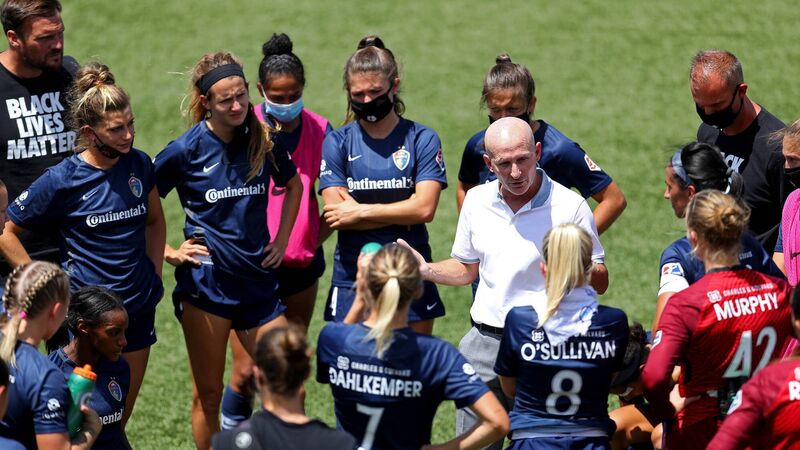Eimear Ryan: Women are getting justice - but what they need is protection

Paul Riley former head coach of North Carolina Courage talks with the team. He denies the allegations against him. Picture: Maddie Meyer/Getty Images
Try from €1.50 / week
SUBSCRIBE
Paul Riley former head coach of North Carolina Courage talks with the team. He denies the allegations against him. Picture: Maddie Meyer/Getty Images
Noted Bantry basketball supporter Emily Ratajkowski has been in the news lately, though not for her sponsorship of the West Cork club. The model and actress is about to publish a book of autobiographical essays called My Body, an extract from which appeared in last weekend’s Sunday Times. In the piece, she recalled her experience on the set of the music video ‘Blurred Lines’, in which she alleges that singer Robin Thicke groped her without her consent.
You probably know the video: three men in suits — Thicke, Pharrell Williams, and the rapper T.I. — look on while three scantily-clad women, including Ratajkowski, dance around with props including oversized furry dice, a toy car, a live lamb, and a bale of hay.
Already a subscriber? Sign in
You have reached your article limit.
Annual €130 €80
Best value
Monthly €12€6 / month
Introductory offers for new customers. Annual billed once for first year. Renews at €130. Monthly initial discount (first 3 months) billed monthly, then €12 a month. Ts&Cs apply.
Newsletter
Latest news from the world of sport, along with the best in opinion from our outstanding team of sports writers. and reporters
Newsletter
Latest news from the world of sport, along with the best in opinion from our outstanding team of sports writers. and reporters
Monday, February 9, 2026 - 5:00 PM
Tuesday, February 10, 2026 - 7:00 AM
Monday, February 9, 2026 - 9:00 PM
© Examiner Echo Group Limited